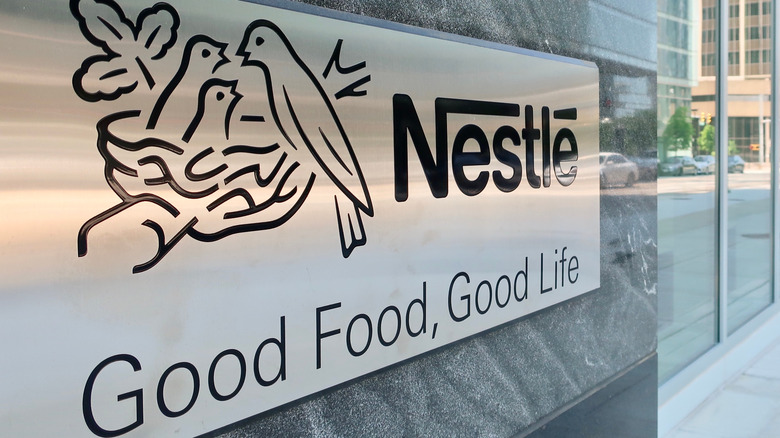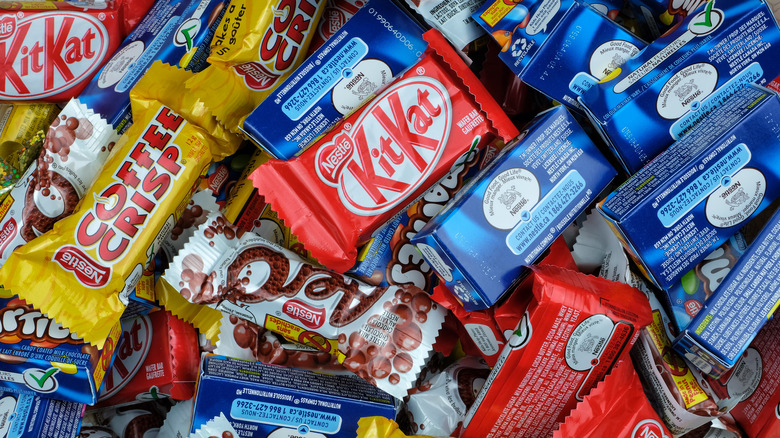Why Nestlé Will Be Allowed To Continue Benefiting From Forced Child Labor
Before you unwrap your next Nestlé Crunch bar, you might want to consider it may have been made with cocoa beans harvested with forced child labor. About 70% of the world's cocoa beans come from four West African countries according to Make Chocolate Fair. Tragically, forced child labor has long been part of the business model. Back in 2001, many American chocolate companies were pressured into signing a pledge to do what it takes to end this practice (via Washington Post). Efforts were made by the companies to improve the existing conditions for enslaved children, but the practice, itself, continued. In 2005, a group of young adults in Mali claiming they were captured and forced to work on Ivory Coast cocoa farms throughout their childhood, sued Nestlé and other chocolate companies for violating both the pledge and the Trafficking Victims Protection Reauthorization Act, per the Guardian.
Nestlé argued it didn't know about the forced child labor, but the trial court tossed the case on a technicality: the U.S. court system doesn't allow foreign nationals to sue in U.S. courts unless an exception applies, and the plaintiffs had failed to establish one. The plaintiffs successfully appealed, but before the case went back to trial, the chocolate companies appealed the result to the U.S. Supreme Court.
The Supreme Court rendered its decision yesterday, and the news is not good for the plaintiffs. Here's why Nestlé and others will be allowed to continue to benefit from forced child labor, at least for now.
Why the Supreme Court sided with Nestlé
On June 17, the U.S. Supreme Court handed down the decision in the case against Nestlé and other chocolate companies. The decision, in effect, condones American chocolate companies sourcing their cocoa from plantations that may well be violating international child labor laws (via U.S. Supreme Court). The reason is that the six citizens of Mali who brought the lawsuit had, in the Supreme Court's opinion, failed to establish a reason why the case should be heard in a U.S. trial court.
The six had been relying on the Alien Tort Statute, which allows foreign nationals to sue in U.S. federal court for acts violating a U.S. law. The law in question here is the Trafficking Victims Protection Reauthorization Act. After the six were turned away by a trial court in California, they went to the Ninth Circuit Court Appeals, which overruled the trial court, explaining that "every major operational decision by [the chocolate companies] is made in or approved in the U.S," (via CNBC).
The chocolate companies successfully applied for an appeal with the U.S. Supreme Court (USSC), which heard arguments from both sides on December 1, 2020. They rendered their decision yesterday, holding that to establish their right to access the U.S. court system, the six plaintiffs would have to offer additional and stronger evidence (via SCOTUS Blog). So for now, it appears that to the extent Nestlé is benefiting from forced child labor, it will continue to be able to do so until the case picks back up again in trial court.

